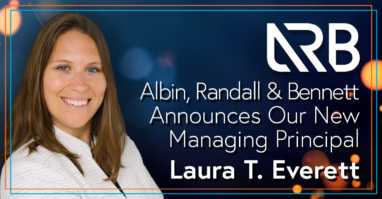
Countless aspects of life and business have made a hasty transition into the digital realm since the onset of COVID-19. Working with professional advisors like your CPA is no exception. This year, the audit process will look a little different, as many audits will be conducted remotely due to travel and social distancing requirements. Since this remote format may be new territory for many organizations, here are some recommendations to help your nonprofit prepare for the audit.
Determine the best way to communicate with your team and your accountant.
Since your audit team won’t be able to pop into your office to ask questions, have a plan to address questions regularly. Avoid being bombarded with daily emails that get lost in the shuffle. Set up a structured way, such as a recurring web meeting or scheduled phone calls, to respond to requests from your audit team.
Be proactive.
Develop and adhere to a comprehensive monthly close process that mirrors year-end audit preparation. This allows for issues to be identified and handled timely during the year, making year-end audit preparation smoother for you and your audit team. Obtain your audit request list early on, so you can provide the information to your audit team as soon as possible. Be forthcoming about any significant changes, new agreements, funding sources, or programs.
Be patient, flexible, and honest throughout the process.
Your audit may take a little longer than usual this year, so be patient. But you need to be vocal throughout the process. Tell your team what’s going well, what isn’t, and how the process could be improved. Let your team know if something needs to change to accommodate your needs.
Give the engagement the same attention you would give it if the team were on site.
Understand that your audit team has set aside time for your engagement, and they still need your help to work through your audit in the allotted time. Ensure that your internal team is available during the scheduled dates. Assign, track, and fulfill your internal duties. This way, you and your auditors can avoid bottlenecks, and everyone has access to the information needed to complete the audit in a timely manner.
Maximize technology.
Your audit team has to perform all the same procedures as if they were at your office, but they might have to go about accomplishing those in different ways. Ensure your organization is set up with the technology necessary for video conferencing, scanning, secure file share, and screen-sharing. When reviewing files in a digital format, for example, it may be most efficient to provide access through screen-sharing. Everyone has likely used tools such as Zoom or Go-To-Meeting more than a few times lately. Leverage these tools to provide explanations rather than email. Questions can be addressed on the spot, so you and your team aren’t chasing a string of follow-up emails.
Remember, your team audits numbers, not people!
Your audit team has to determine if your financial statement balances are fairly stated in accordance with generally accepted accounting principles. To do so, they will ask probing questions, and they may make requests and recommendations. Don’t take anything personally, especially around your processes and internal controls. They aren’t auditing your skill or intentions; they’re auditing your numbers!
Contact ARB
ARB’s Nonprofit Advisory Services Team helps nonprofits stay on the leading edge at any stage of financial growth. My team provides resources, legislative updates, best practices, and services tailored to your industry and organization’s needs. Contact me today to discuss your remote audit needs.
by Alyssa Hemingway, CPA, CGMA
Alyssa Hemingway joined ARB in 2016 and is a Senior Manager. She provides accounting and auditing, and advisory services primarily for nonprofit organizations. Alyssa specializes in compliance audits in accordance with Uniform Guidance and MAAP. Her career concentration has been in non-profit organizations, including education, conservation, healthcare, community, and welfare services. She advises our clients on internal control systems, accounting standards, and organizational matters.




